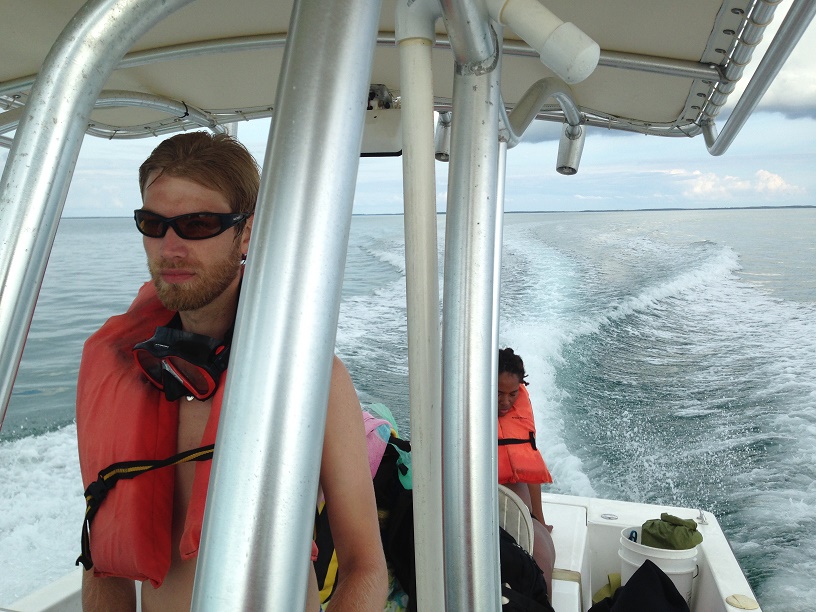Matthew Smith is a Master’s student of the Ecology and Environment Lab from the University of Exeter in the UK. The main focus of his study is the effects of anthropogenic noise on reef fish populations, vocalisations and behaviour. There have been many studies on the effects of anthropogenic noise on marine mammals, but substantially fewer studies have be conducted concerning how noise pollution is affecting reef fish. Hearing and vocalisations are very important to many species found in the patch reefs such as those off of the coast of Cape Eleuthera. Boat traffic is an emerging threat that is often forgotten when assessing the threats to marine populations.

The primary study has involved selecting pairs of patch reefs with similar characteristics before splitting the pair into either treatment group, to receive increased or reduced boat traffic. By conducting fish surveys at regular intervals and recording using a hydrophone, Matthew is able to decipher if the changing levels of boat traffic is having an effect on the community living on each patch reef.
A secondary study is looking at the effect of boat traffic on damselfish (Stegastes spp.). Damselfish aggressively defend territories within which they preen a ‘garden’ of algae and have a heavy influence on algae populations on reefs as well as the behavior of fish in and around their territories. Using reefs that are less frequently exposed to boats, cameras are set up in front of damselfish territories to record how exposure to boat traffic affects their behavior. The end goal is to be contribute towards a better assessment of how anthropogenic noise pollution is affecting fish populations.